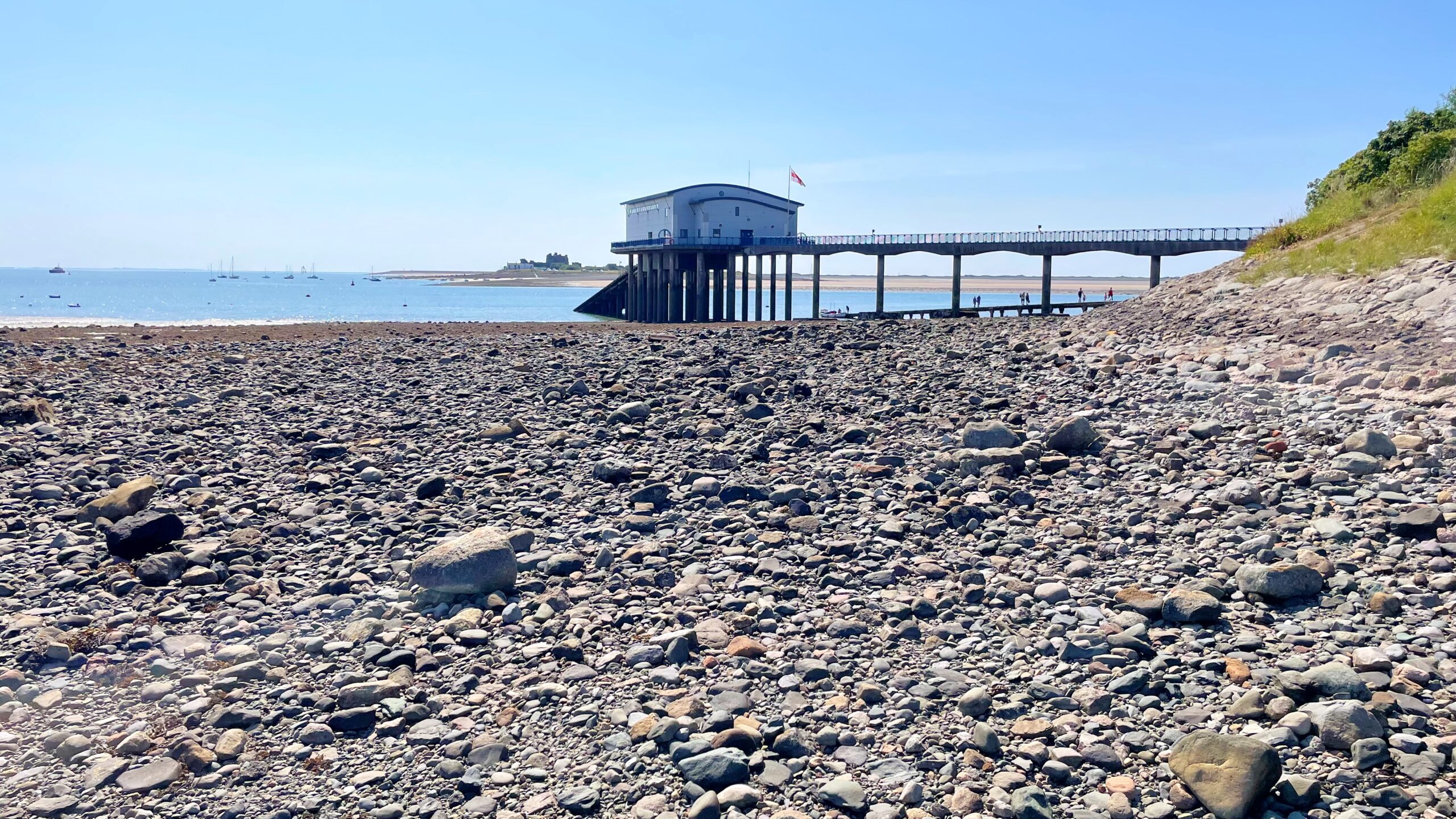To Roa Island, once a true island until a stone causeway tethered it to the mainland in 1847. That same causeway carried the Furness Railway to a deep-water pier, where steamers departed for Fleetwood. The trains and steamers are gone, but today Roa Island still looks out to sea, its ferry carrying passengers across to Piel Island, visible in the distance.
The real presence here is the RNLI lifeboat station, serving Morecambe Bay and the Irish Sea since 1864. Rebuilt and expanded in recent years, it now houses the Tamar Class “Grace Dixon” and a smaller D-Class inflatable for inshore rescues. Most of the crew live on the island or in nearby Rampside. Even the ferryman to Piel is among them. Their quiet commitment commands respect.
It makes the bile directed at the RNLI by certain right-wing voices, and their willing press allies, all the more despicable. These volunteers risk their lives for whoever is in danger. They do not ask the colour of your skin, or where you come from, before launching into a storm. To them, saving life is a duty, not a political calculation.
The bitterness directed at such work reflects a wider shift in moral assumptions. Not only about those lost at sea, but about anyone who suffers. The RNLI stands as a rebuke to that cynicism. Life-saving is a reminder of humanity at its best, a rare example against which even the hardest sceptic struggles to sneer.
We cannot all crew lifeboats. Yet we can all do something for others on this small planet we share. The RNLI shows what is possible when compassion outweighs fear. Its very mission declares a kind of universalism: that every life is worth saving. That is a principle worth holding to, in an age when too many seem to have forgotten it.

Leave a Reply to John Eaton Cancel reply